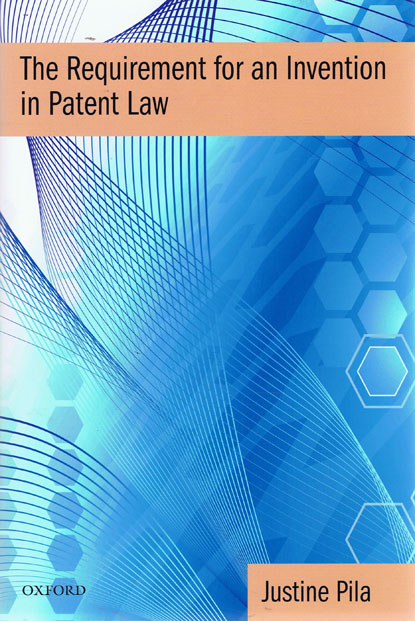
The Requirement for an Invention in Patent Law provides a critical analysis of legal conceptions of the invention in UK patent law and under the European Patent Convention. Dr Justine Pila brings to this text her extensive experience in intellectual property law.
A central theme of the book is that the requirement for an invention, properly construed, sets the boundaries of the patent system in two ways. The first is by defining the categories of subject matter capable of supporting a patent, and the second is by restricting the protection conferred by a patent to individual subject matter conceived qua invention. In serving these functions, the requirement for an invention helps to fulfil the public benefit objectives of the patent system by mediating the balance struck by patents between individual patentees and the public.
This book offers an analysis of legal conceptions of the invention in UK patent law and their development from before the first patent legislation of 1623 through the patent system's recent phase of Europeanisation. It includes a detailed study of the contemporary (EPC) requirement for an invention and its construction by the European Patent Office, and an analysis of the legal and policy issues which that construction raises. It also places the UK and EPC law in its interpretive context, including its international statutory context, and offers a detailed account of international law-making in the field of patents.
The Requirement for an Invention in Patent Law is an indispensible reference text for students and academics of intellectual property law in general and contemporary patent law in particular, and will appeal to anyone interested in Europeanisation, international patent law and harmonisation, and the history of the UK patent system. Its elucidation of this complex area also makes it an excellent guide for practitioners.